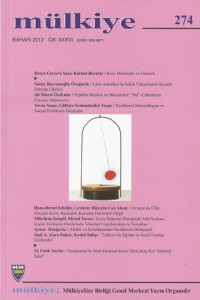Abstract
İnsani sermaye kuramına göre insani sermaye kişinin üretkenliğini arttıran her türlü bilgi birikim ve kişisel özellikleridir ve eğitim insani sermaye yatırımının en önemli aracıdır. Bu kurama göre daha yüksek eğitim işgücü piyasalarında daha yüksek getiri ve daha güvenceli iş demektir. Bu çalışma, sınıfsal bir perspektife dayanarak Türkiye için bu beklentilerin gerçekleşmediğine dair gözlemler sunmaktadır. Harcama artışına rağmen emek gücünün genel eğitim seviyesi yükselmemektedir. Buna ek olarak ayrıcalıksız emekçi ve işsiz haneler içinde yüksek öğrenim mezunlarının oranı artmaktadır. Ayrıca emek süreçlerinde yüksek öğrenim mezunları giderek daha fazla kol emeği uygulamak zorunda kalmaktadırlar. Bununla beraber, eğitimli işsizlerin oranının artması eğitimin artık iş güvencesi bile sağlamadığının bir göstergesi olarak ele alınabilir. Sonuçlar, olgunlaşmış neo-liberalizm dönemi olarak da adlandırılabilecek 2002-2009 yılları arasında, eğitim sonucu elde edilen derecelerin işgücü piyasalarında ciddi anlamda değer kaybettiğini göstermektedir.
In human capital theory, human capital corresponds to the stock of knowledge, skills and characteristics that contribute to one’s productivity. In this context, education, perceived as investment in human capital, is expected to yield higher returns through labor markets in the form of higher wages, better and relatively secure occupational positions. This study, depending on a class-based perspective, provides some observations which put some doubt on the predictions of human capital theory. The educational level of the labor force does not seem to increase in spite of rising expenditures on education. On the other hand, among those who are unemployed or work as unskilled labor, the ratio of university or above graduates has been increasing. Lastly, relatively better educated workers use increasingly more manual labor than mental labor. Yet, rising ratio of educated unemployment shows that it does not even serve as a guarantee for employment security. Our findings show that, in the period 2002-2009 which can be described as the period of mature neo-liberalism, educational degrees have been severely devalued in the labor market.
Details
| Primary Language | Turkish |
|---|---|
| Journal Section | Makale /Articles |
| Authors | |
| Publication Date | January 13, 2015 |
| Published in Issue | Year 2012 Volume: 36 Issue: 1-274 |


